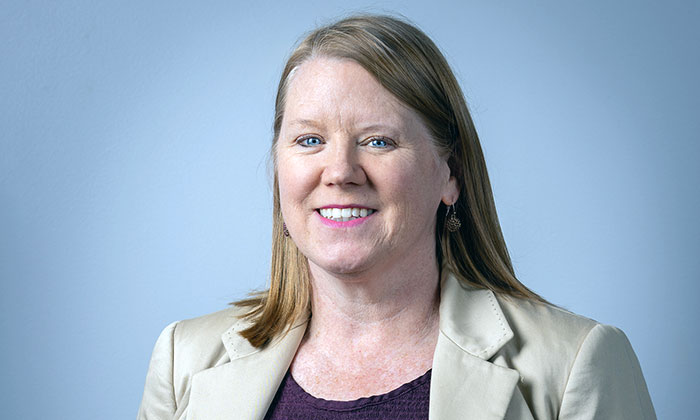Dr. Julia Doto, Assistant Professor of Health and Human Performance at Marymount University, has received certification as a Climate for Health Ambassador through ecoAmerica, which empowers health care leaders to advocate for climate solutions. In this role, she will serve as a resource for companies, legislators and members of the general public who want to learn more about the intersection of climate change and personal wellness.
“As a public health professional, I was interested in learning how to communicate with others about the health implications of climate change in a way that will resonate with them and help them better understand the issue,” Dr. Doto said.
With a background in health communication, Dr. Doto has always been interested in the relationship between health and the environment and how people discuss these issues. As a professor, she strives to help students understand the far-reaching effects of climate change on general well-being.

“There’s a strong connection between climate change and the public’s health,” Dr. Doto explained. “We may not realize it day by day, but climate change has a large impact on our physical and mental health. For example, warmer weather patterns are causing an increase in pollen counts and larger mosquito and tick populations, resulting in longer allergy seasons and more cases of Lyme disease. There are important implications we’re seeing for populations, particularly for college students and young adults with respect to decreased mental health.”
Dr. Doto says she became a Climate for Health Ambassador to help change the negative narrative surrounding climate change and encourage others to promote sustainability.
“I want students to be motivated to act, not be discouraged,” Dr. Doto explained. “Many students may have learned about climate change in a very negative light in the past — that if we don’t do something, we’re going to be in trouble. Rather, I want to reframe that in a more positive way and engage students to focus on what they can do and emphasize how we are making progress in the community and beyond.”
She also spoke about how Marymount is practicing sustainability on campus and decreasing the University’s climate impact. These methods include a 12-credit Sustainability minor with courses on sustainable design, understanding climate change and an introduction to geosciences. The institution has also fostered a community garden, created sustainable food production options in dining halls and restored green spaces around campus — in 2021, the former parking lot in front of the Administration Building was transformed into a lawn for recreational and environmental purposes. Marymount has also been dedicated to tree-planting efforts both on and off campus.
The University’s aim to build a more eco-friendly campus has been recognized by the U.S. Green Building Council, which gives ratings for Leadership in Energy and Environmental Design (LEED). On Marymount’s campus, Caruthers Hall and Ostapenko Hall are LEED-Silver Certified while the Ballston Center is LEED-Gold Certified, meaning these buildings are highly efficient and have reduced carbon emissions, making Marymount a more sustainable campus overall.
Dr. Doto says there are plenty of easy ways for individuals, particularly college students, to reduce their environmental footprint.

“We always hear ‘Reduce, Reuse, Recycle’ when it comes to recycling, but an important but often forgotten first step is ‘Refuse,’” she said. “We can refuse to buy certain products in the first place or think more strategically about what we do buy. This is one I’m personally working on — it can be challenging, but it makes you think about the bigger picture. Students can also find ways to participate in sustainability efforts on campus by participating in existing initiatives like clothing drives to recycle old clothes, being mindful of portion sizes to reduce food waste and taking the University shuttle to cut down on fuel emissions.”
To inspire students to take action in their everyday lives, Dr. Doto aims to host more campus events with a climate and public health focus. She’s already organized an Ethics Week panel with Dr. Susan Agolini, Associate Professor of Biology, and hopes to further educate community members in the future.
“A lot of times, people expect or rely on industries and organizations to take action to combat climate change and we forget or negate the individual role that we all can play,” Dr. Doto said. “I hope that we can help students and the greater Arlington community be more aware of what they can do personally to help the environment.”
In honor of Earth Day, Marymount students are encouraged to attend a community service project on Saturday, April 20 to plant shade trees at Fort Barnard Park in Arlington. Please RSVP to Dr. Susan Agolini at sagolini@marymount.edu.





